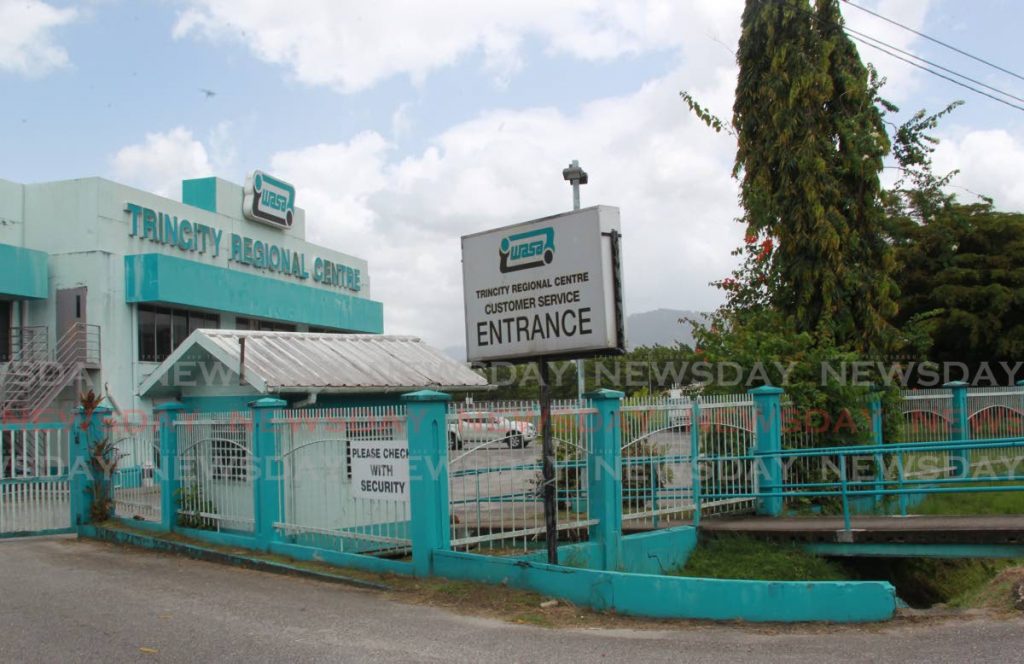WASA to set up payment kiosks, online permit system

The Water and Sewerage Authority (WASA) has launched an online automated permit system for plumbing, water, and wastewater systems, which should make it easier for people to get approval for building projects.
The utility will also be putting payment kiosks in its branches to allow people to pay bills quickly and easily.
Speaking at the launch of the system at the Public Utilities Ministry, Alexandra Street, St Clair, on Monday, WASA deputy chairman Alston Fournillier said the new services department will transition from paper-based to online, with applicants no longer being required to visit offices with their plans, as they can be submitted online with supporting documentation.
“No longer will one have to worry about applications being lost, with customers having to revisit the department to make submissions. No longer will customers have to worry about their files being lost in a fire and cannot be retrieved.
“Digital transformation and streamlining of application processes will result in a reduction in the processing time of application." He said people would no longer have to wait six months or up to two or three years for approval.
"All applications within the control of the department are being processed in the following timelines: seven-14 days for plumbing applications, and 14-28 days for building development applications."
The platform will be available through an e-module on the DevelopTT website. Trade and Industry Minister Paula Gopee-Scoon said this project was funded through the IDB with an investment of US$2.4 million.
“DevelopTT was envisioned as a one-stop shop online portal where parties interested in pursuing development can apply for and attain all the necessary building approvals and permits from the participating public entities and statutory bodies. The new e-utilities model will make it easier and more efficient for businesses, developers, and individuals to submit applications for three key permissions from WASA: building development, plumbing connections, and sewage connections."
She said the need for physical applications will be eliminated, and users will be able to track the application through the entire process online, and receive and provide the necessary feedback electronically.
An approval letter will be digitally generated once the application is approved.
Gopee-Scoon said the ministry also gave the department scanners and wireless printers, as well as training staff in using the platform. She said three key e-payment options will be launched before the end of this fiscal year.
Digital Transformation Minister Hassel Bacchus said a key element of the initiative was the collaboration between the three ministries and the IDB. He called for the public to be educated on the system.
“This doesn’t fix everything. Not because you have a digital process with digital technology means everything will go smoothly.
"There’s a component you can’t control, and that’s the applicants. There are rules, requirements, things you must do to ensure this works well.
"If the people who have to do them are not informed, not educated, not given the opportunity to figure out to do it, and they are not given help when they have problems, this will not work. Your work is not done.”
Public Utilities Minister Marvin Gonzales said the people of Trinidad and Tobago are invested in the outcome of the transformation because: “They require an authority that represents them and acts in their best interest. If we don't have platforms like these, that can improve the level of service, then you don’t have transformation.”
Gonzales said more improvements are coming, including three options for e-payment and an automated leak management system.
“We’re going to roll out this system where people can report leaks, monitor when a leak is repaired, and when a road is restored. These will be on an automated platform to ensure the utility company responds in real time to reports of leaks and road restoration.”
Senior manager care Patrina Abdool demonstrated the payment kiosks which WASA will instal at all branches in the first phase, followed by rural areas and malls. Customers can pay via cash, debit card or credit card, using bills or payment vouchers from previous payments.

Comments
"WASA to set up payment kiosks, online permit system"